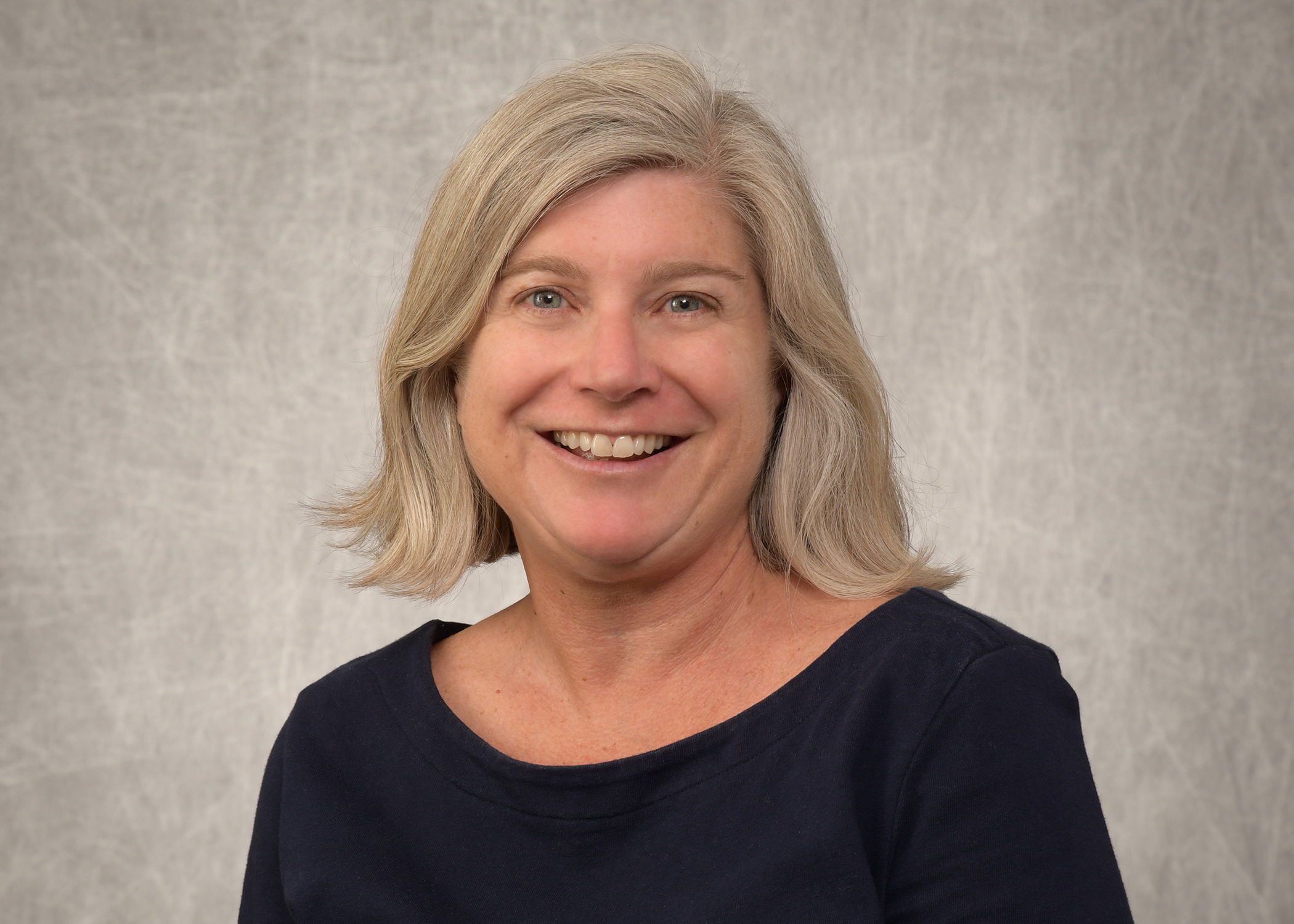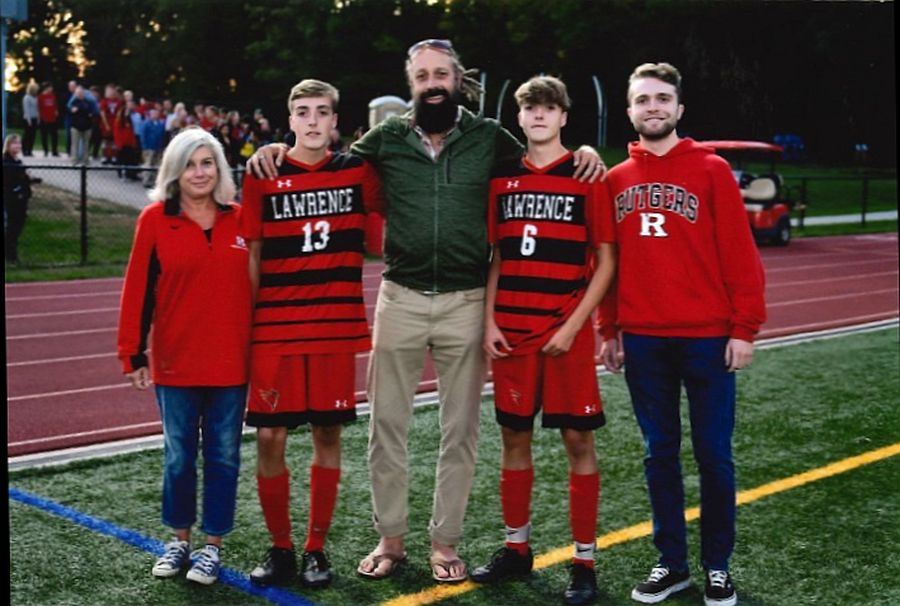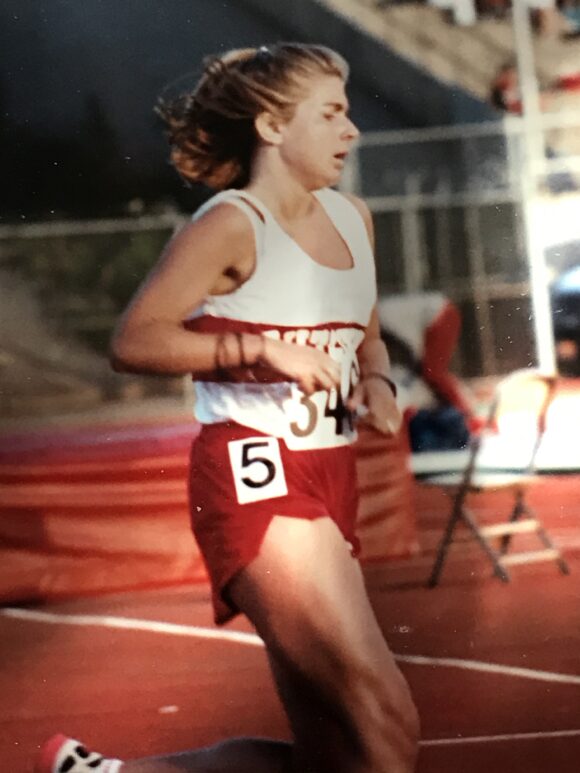
Dr. Kelly Bidle, Rutgers alumna (CC’91)
Kelly Bidle (CC’91, Biological Sciences) began her tenure as dean of the newly created College of Arts and Sciences at Rider University, effective July 1. The new college, the result of the merger of the College of Liberal Arts and Sciences with Westminster College of the Arts, consists of four schools—three of them new—Westminster Choir College, The School of Communication, Media and Performing Arts, The School of Humanities and Social Sciences and The School of Science, Technology and Mathematics.
Kelly joined Rider’s faculty as a biology professor in 2001 after earning her doctoral degree in Molecular and Cellular Biology at the University of Maryland and completing an National Science Foundation (NSF) postdoctoral fellowship at the Scripps Institution of Oceanography. She was appointed the dean of the College of Liberal Arts and Sciences in 2019, playing a crucial role in the creation of the new wing of Rider’s Mike and Patti Hennessy Science and Technology Center and its corresponding academic programs. She served as co-chair of the university’s COVID-19 implementation team that shaped Rider’s ongoing response to the pandemic.

Kelly Bidle (CC’91), left, and her family.
Kelly credits Rutgers University in playing an integral part in her growth as a scholar and professor, starting with her undergraduate education at then Cook College, now School of Environmental and Biological Sciences. But her Rutgers roots did not end with her bachelor’s degree. All three of her sons are, or will be, Rutgers graduates (Will SAS’21, Luke SAS’24 and Jude SoE‘24) while her husband, Kay, is a Rutgers professor in the Department of Marine and Coastal Sciences.
Known as Kelly Robinson when she attended Rutgers, she shared her undergraduate journey with SEBS/NJAES Newsroom and spoke of her excitement at leading the newly created College of Arts and Sciences at Rider University.
What degree did you receive at Rutgers and what drew you to that major?
I was a Biological Sciences major. When I was a freshman in high school, I took an honor’s biology class and when we got to the section on Genetics and Gregor Mendel, my path was set. As an undergraduate, I was very fortunate to work in the genetics and evolution laboratory of Dr. Bob Vrijenhoek, who was an incredible mentor. During my senior year, he and Dr. Richard Lutz invited me on an oceanographic research cruise in the Gulf of Mexico, which was, and remains, a very rare opportunity for an undergraduate student. I also took two courses at Rutgers in Microbiology, one with the late Dr. Doug Eveleigh, and started to gravitate towards the field of marine microbiology. That, combined with a graduate-level course that I took with Dr. Barbara Zilinskas in biotechnology during my senior year, made me realize I was really interested in molecular biology. Once I got to graduate school, I rotated in a lab that studied the molecular genetics of extremophiles, microbes that live under extreme environmental conditions (e.g., high hydrostatic pressure, hydrothermal vent conditions of boiling temperatures) and that solidified my future research career.

Kelly Bidle (CC’91) was a student-athlete during her undergraduate years at Rutgers.
Looking back at your Rutgers journey, what stands out to you as the most challenging?
I was a student-athlete, running cross country and track for the incredible Dr. Roberta Anthes. Balancing the rigors of a Biology major curriculum, finding time to be in the Vrijenhoek lab and running 8-10 miles a day for practice, with competitions and travel on the weekends, was hard. My freshman year, in particular, was very rough and I did not get off on the right foot, academically-speaking. Luckily, I had not only Roberta and some amazing teammates guiding me to find the right balance, but I was originally in the George H. Cook honors program and in a freshman composition class taught by the late Dr. Barbara Goff. She saw that I was struggling and didn’t make me feel badly that I wasn’t fitting in with my cohort in the honor’s program, but rather gave she me the encouragement to see there are many different paths to success, not all of them solely related to the classroom. These are lessons I tell my own undergraduate students all the time.
Alternately, what did you find most rewarding?
I am so proud to be a Rutgers graduate. I bleed Scarlett. To have received my undergraduate education from such a prestigious university is a major source of pride. And to have clawed my way out of the academic hole I had dug for myself in my freshman year gave me lifelong lessons on the power of perseverance. I’ll also say I love Rutgers so much that the day my oldest son told me he wanted to go to Rutgers, I burst into happy tears. The fact that his twin brothers, rising juniors, followed in those footsteps just makes me smile.
What was the transition like to graduate school? How did your Rutgers education prepare you for your doctoral studies?
Because I worked in Dr. Vrijenhoek’s research lab for three years, I was able to hit the ground running when I got to graduate school. I had classmates that had never worked in a lab, while I was already working on projects my first fall semester. And, the Biochemistry I & II courses I took with Dr. Peter Kahn helped me ace my first-year graduate courses. Once again, it was my Rutgers experience that helped shape me as a professor as it related to how I mentored and prepared undergraduates for graduate school in my own research lab at Rider.
You began your Rider University career as a biology professor. Have you always wanted to teach, college-level or otherwise?
No, I honestly wasn’t sure what career path I wanted for myself. While I was in graduate school, and even during my post-doc, I loved being at the bench and really thought I would go work for a biotech company. Then, once I started a family during my post-doc, I realized the type of career that would allow for the work-life balance I was looking for was likely to be found at a primarily undergraduate institution. I also was homesick for New Jersey after living on the West coast for five years, and when I saw the faculty job at Rider, I applied. Being in the classroom with undergraduates for 17 years has been one of the most rewarding professional experiences of my career. I always tell them about my own mentors and how it’s important to pay that forward.
After 17 years in the classroom, you became a university administrator. What was that transition to Dean of a college like?
The transition was surprisingly easy. Quite honestly, it was time. I saw that I could do greater good in an administrative role, advocating for students and faculty, and helping to build a vision for Rider that will allow us to continue to educate students for years to come. I am by nature a problem-solver and being a dean is all about people and problems. It’s also something new every day and that excites me.
You were tapped to lead the newly created College of Arts and Sciences. What do you see as the primary opportunities for your students?
This is a very exciting time for our college. We have faculty and programs that have not had a strong opportunity to work together before, due to the natural silos that are often part of higher education. With four schools under one umbrella in Arts & Sciences, I’ve had so many exciting conversations with our faculty about opportunities they see for our students. I want to foster these ideas and provide resources to help make them a reality.
The new college merges seemingly disparate disciplines under one roof, as it were. What are your broad aspirations for this multi- and inter-disciplinary college?
When it really comes down to it, the disciplines of the social sciences, the humanities, the performing arts, and life and physical sciences are all part of the same common thread. All involve creativity, and in some way, are an intellectual quest to satisfy a human curiosity. Further, in today’s job market, all of the critical soft skills one needs to be successful are taught through a multi-disciplinary arts and sciences lens, taking courses across a variety of all of these disciplines. Things like quantitative literacy, oral and written communication, teamwork, critical thinking and emotional intelligence all are derived and reinforced across these disciplines. If I had an aspiration for our new college, it would be for all of our students to take courses widely across all of these disciplines, to become broad and open-minded thinkers. That is something all of society could really use right now.

